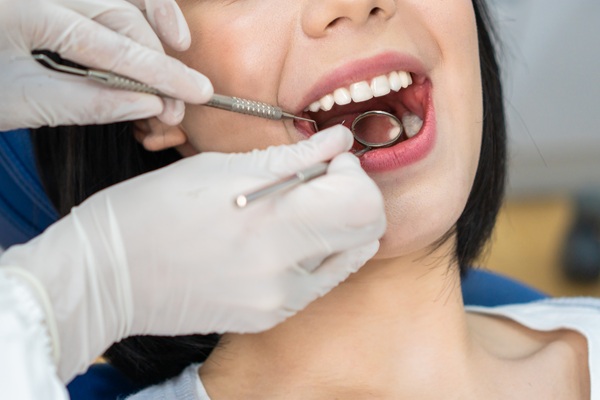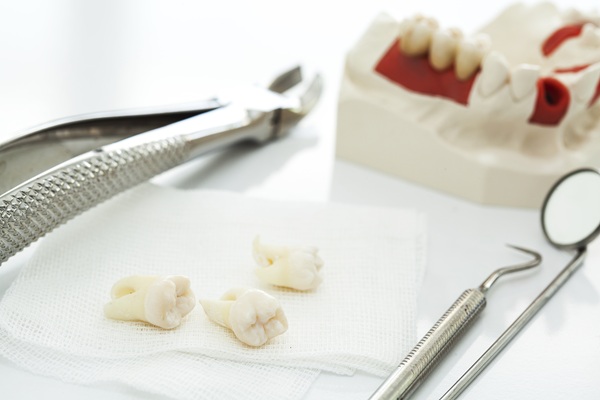How to Care For Your New Dental Implant Restoration

A dental implant restoration is a significant investment in your oral health. This tooth replacement option offers durability while improving the function and appearance of your smile. However, there are ways how you can ensure the long-term success and integrity of the restoration.
Daily oral hygiene practices
Keeping good oral hygiene is important for the longevity of a dental implant restoration. Patients should brush their teeth twice daily with a soft-bristled toothbrush to remove plaque and bacteria from the restoration and the soft tissue around it. Use non-abrasive toothpaste to prevent scratching the surface of the restoration.
Additionally, floss at least once daily with implant-friendly or interdental brushes. This practice cleans hard-to-reach spots and prevents plaque from building up. Patients can also use antimicrobial mouthwash to reduce the accumulation of bacteria and help their gum tissue around the restoration stay healthy.
Dietary guidelines for implant longevity
Certain dietary habits can affect how long the dental implant restoration lasts. Patients should avoid chewing on hard or sticky foods like ice, caramel, or hard candies. These can put extra stress on the implant and the abutment attached to it, whether it be a crown, bridge, or denture.
Additionally, the patient should avoid acidic foods and drinks, such as citrus fruits and fizzy drinks. These can harm the enamel and irritate the gum tissue. Instead, they should consume a balanced diet of vitamins and minerals to keep their mouth healthy and support strong gum tissue around the implant.
Avoid harmful habits
Certain harmful habits can jeopardize the success of a dental implant restoration. Smoking and tobacco use increase the risk of gum disease, which can lead to implant failure. Quitting smoking and other consumption of tobacco can improve the longevity of the restoration and the patient's overall oral health.
Bruxism, a condition where a person grinds their teeth, can also place excessive pressure on the restoration and surrounding bone structure. The dentist may recommend a night guard to protect the implant and remaining natural teeth against grinding. Additionally, patients should avoid using their teeth as tools to open packages or bite non-food objects to prevent accidental damage.
Regular dental checkups and professional cleanings
Routine dental visits are important for checking the health of a dental implant. Professional cleanings remove tartar buildup and help the dentist evaluate how stable the implant restoration is. Regular checkups allow the dentist to spot problems like gum swelling or unevenness before they get worse. The dentist can also recommend specific cleaning techniques or products to help the patient keep their mouth healthy.
Recognizing potential complications
While dental implant restorations have a high success rate, there are complications associated with the treatment. Patients should be aware of the following symptoms:
- Persistent pain
- Swollen gums
- Peri-implantitis
- Bleeding around the implant site
- Loose or shifting implant
- Implant fractures
Taking action as early as possible can help preserve the implant and surrounding oral structures.
Call our office to schedule an appointment
A dental implant restoration provides a durable and natural-looking solution for missing teeth. But you have to take proper care of it to ensure its long-term success. Following the guidelines above can help protect your investment and oral health to ensure that the restoration remains in optimal condition for years to come. Call our Swampscott office to learn more or to schedule an appointment.
Request an appointment here: https://www.bryancousindmd.com or call Cosmetic & Family Dentistry of the North Shore at (781) 443-8268 for an appointment in our Swampscott office.
Check out what others are saying about our dental services on Yelp: Dental Implant Restoration in Swampscott, MA.
Recent Posts
If you have a broken tooth, it may not necessarily be a dental emergency. In the absence of pain, excessive bleeding, or a tooth that is knocked out completely, you can schedule an appointment at your convenience and do not need to see the dentist immediately. In most cases, broken teeth can be caused by an…
A dental restoration is a treatment that can help restore your appearance and protect damaged teeth from future harm. There is a range of dental restoration options available, and deciding which is right for you can be a challenge. This guide offers insights into the questions you should ask when choosing the right dental restoration…
Traditionally,dental restorations require an individual to have a physical impression of their mouth taken. Impressions are necessary to accurately create an indirect dental restoration, which are restoration made outside of the oral cavity and applied at a later time. Dental crowns, veneers, inlays and onlays are all examples of restorations that require impressions in order to…
While brushing is crucial for oral health, it can't restore the shade of one's teeth or correct alignment.If you are interested in restoring a damaged tooth or replacing a missing one, then we can help with various types of dental restorations. We customize our dental restorations to the mouth, teeth, jaw, and needs of each…


